What Is GHB?
From the mid-1990s onwards, reports began to appear in the UK media of the use of a colourless, odourless drug to facilitate rape and sexual assault. [1] GHB, had emerged onto the party scene some years previously, but the ease with which it could be sneaked into drinks and the strength of its effects rapidly saw it described as a “date rape drug” in the press and on television. It continues to be best known in that regard by the British public. However, the dangers of GHB go far beyond its potential to aid sex criminals: consuming the drug can lead to serious physical harm and even death. GHB addiction is ruining lives across the country.
GHB is the abbreviation for gamma-hydroxybutyric acid (also known as 4-hydroxybutanoic acid), a chemical which occurs naturally in the body (as a neurotransmitter) and in small quantities as a result of fermentation. This substance is also a psychoactive drug.
Although used for some medical purposes, it is commonly consumed recreationally for its intoxicating euphoric, aphrodisiac and empathogenic effects – sometimes described as being similar to those of alcohol and MDMA (ecstasy) combined. Sometimes, it is abused as a performance-enhancer or in the commission of criminal activities including rape, sexual assault and robbery.
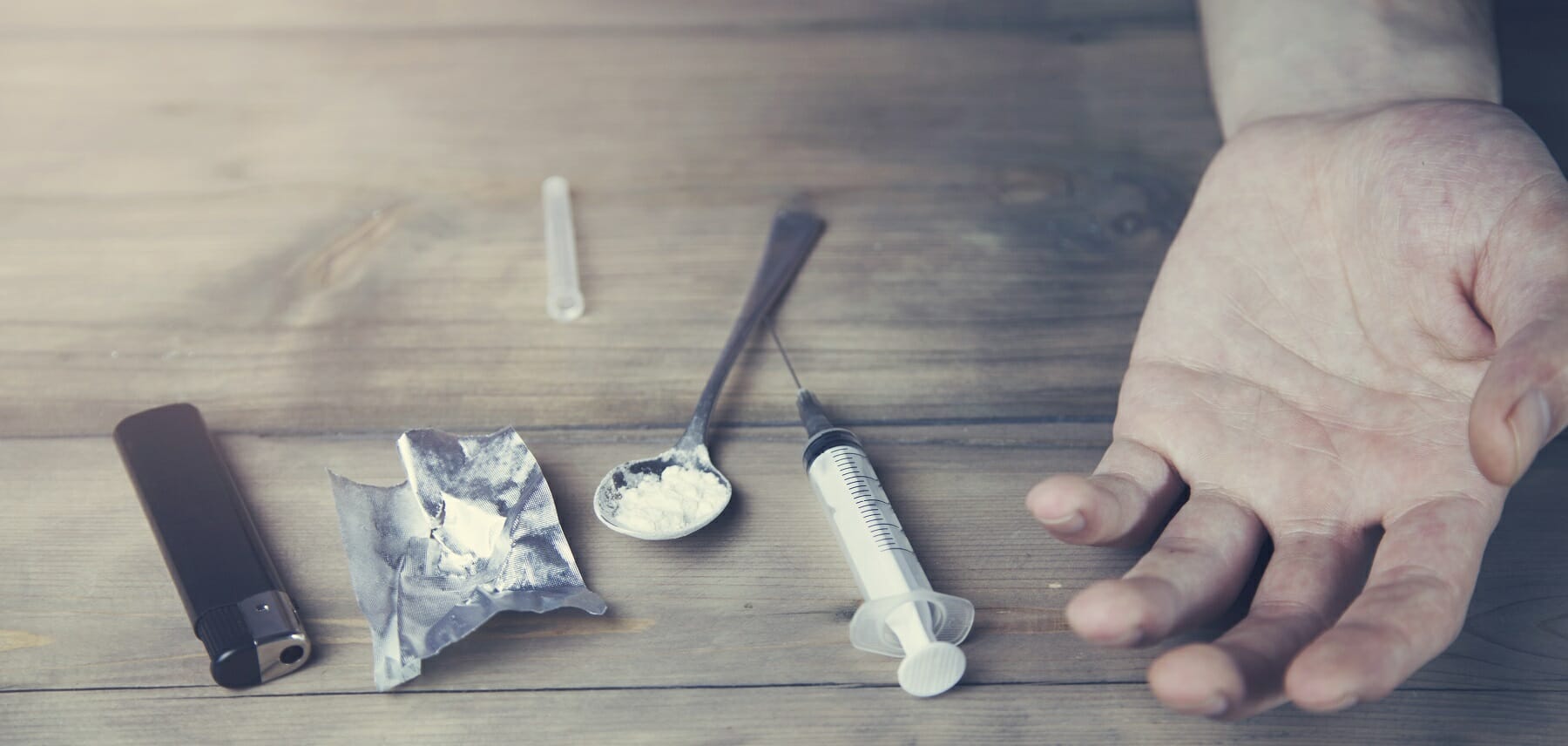
GHB saw peak usage in the UK in the first decade of the new millennium, but consumption has declined since then as awareness of its negative and potentially dangerous side-effects has become more widespread. Nevertheless, GHB remains a popular recreational substance in certain circles and environments, despite the risk of overdose associated with its consumption and the fact that it is known to be significantly habit-forming. Withdrawal poses dangers to both physicaland mental health.
Because GHB is fairly easy to manufacture, and its production does not require any particular chemical expertise, much GHB consumed in the UK is made in domestic operations rather than large-scale facilities. The quality and purity of GHB available at street level can therefore differ very significantly from one dose to the next. Numerous additives may be found in any given dose, some of which may themselves be dangerous.
Chemical formula
GHB has the chemical formula C4H8O3, and the chemical synonyms γ-Hydroxybutyric acid and γ-Hydroxybutyrate.
Available Forms
GHB is usually found in its salt form as a white powder, or in liquid, both for oral consumption. Although GHB powder has a slightly salty taste, when dissolved in liquid or added to other items to be swallowed, GHB is effectively tasteless and has no discernible odour, making it extremely difficult to determine without chemical testing if GHB is present in any drink or foodstuff. [2]
Medical Uses
GHB is occasionally used in general anaesthesia, and in the treatment of narcolepsy and alcoholism. Rarely, it may be used off-label to treat fibromyalgia. GHB is also used in some jurisdictions as a veterinary anaesthetic. [3]
Legal Status (UK)
In the United Kingdom, GHB is a class-C controlled substance under the Misuse of Drugs Act 1971, with a maximum penalty of two years in prison plus a fine for unauthorised possession, and up to 14 years’ imprisonment plus a fine for supply.
Routes of Administration
GHB is usually taken orally (swallowed) and less commonly is injected intravenously. Some instances of insufflation (snorting) have been reported, as have cases of users applying the drug rectally or vaginally. However, it is not clear how commonplace such actions are, nor whether or not they represent more than an insignificant minority of users.
Pharmacological Actions of GHB
GHB receptors are found in many areas of the brain, but are less than perfectly understood, as is the effect of GHB itself upon them. It is thought that activating GHB receptors releases glutamate, the main excitatory neurotransmitter in the CNS, which can have stimulant effects in someone taking GHB.On the other hand, the effect of GHB upon GABA receptors is to increase the effect of GABA and the duration for which it stays active, which has sedative and anxiolytic effects.
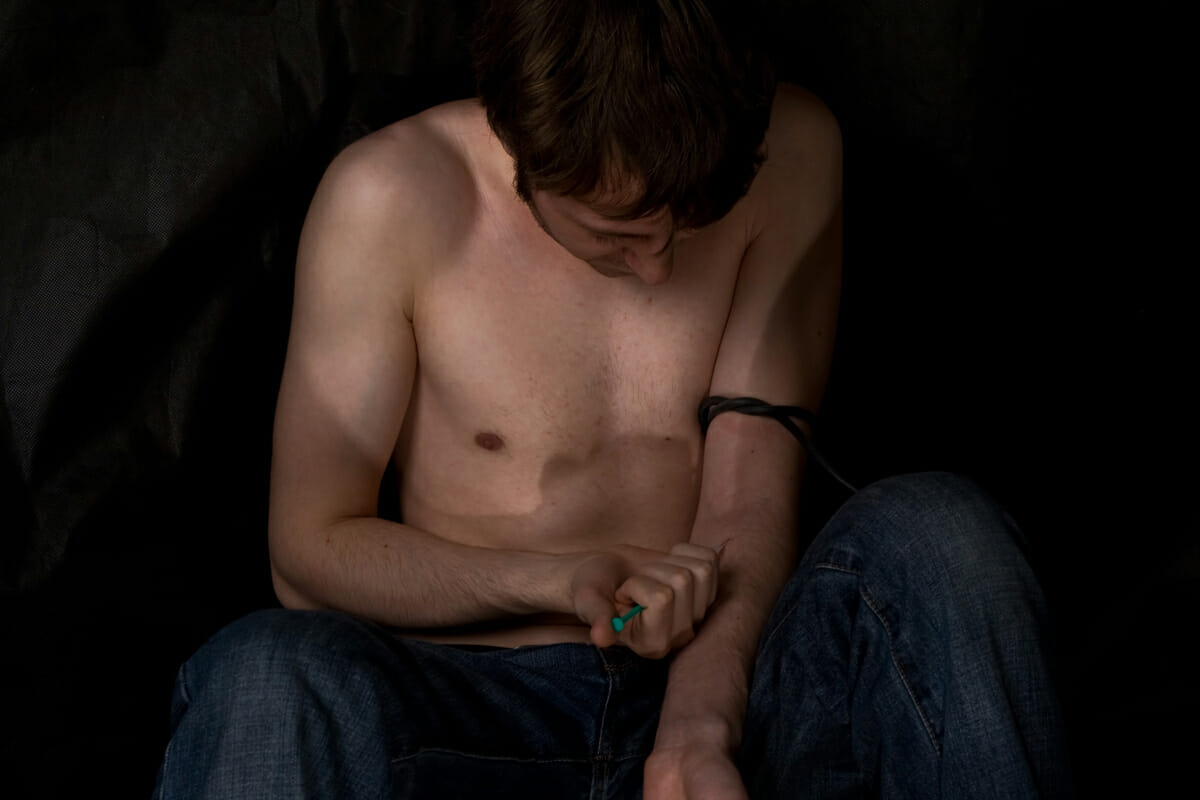
GHB therefore has somewhat contradictory and paradoxical qualities, in that it can both stimulate and relax the user, giving rise to a complex mix of sensations and experiences and a correspondingly intense “high”. However, this paradoxical nature also gives rise to various dangers, including interactions with other substances and increased complexity of withdrawal.[4]
GHB Brand and Street Names
GHB is not commonly available worldwide as a prescription or over-the-counter drug, though it is an ingredient in the sleep aid Xyrem and may be available under various generic names in some locations.
In the UK, GHB is known under a wide variety of street names including:
- G
- liquid ecstasy
- liquid E
- liquid X
- Grievous Bodily Harm
- soap
- scoop
- goop
- Gina
- Georgia
- growth hormone booster
- vitamin G
- love water
- love juice
Call our admissions line 24 hours a day to get help.
Understanding GHB Addiction
Addiction is a disorder of the brain’s reward centres, in which repeatedly engaging in a specific rewarding stimulus or behaviour causes the reward system to adjust in response to that repetition. Thus, it increases the production and effect of chemicals, such as dopamine which is associated with pleasure and reward, and reduces the level of those chemicals in the brain in the absence of the behaviour in question.
In the case of GHB specifically, consuming GHB causes a flood of dopamine across various parts of the brain and CNS, producing pleasurable effects which the user may be designed to repeat in order to enjoy the experience once more. This has a redoubling effect upon the reward system, as the user comes to associate taking GHB with feelings of pleasure and well-being. The absence of GHB from the system produces lower than usual levels of dopamine which creates negative psychological effects. The user may wish to dispel these effects through further consumption of GHB.
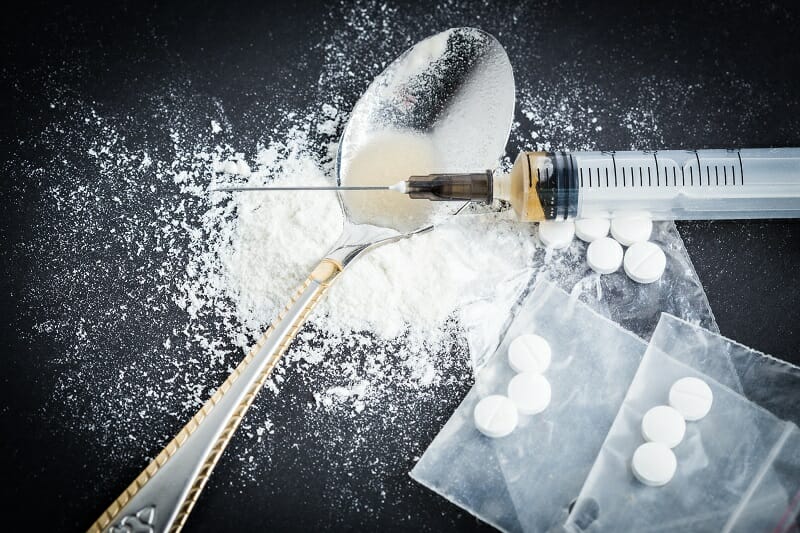
GHB Addiction and How It Develops
The experience of GHB can be very pleasurable, and can prompt users to take the drug frequently and regularly – especially in certain settings such as sex parties in which GHB is commonly consumed. These parties can last for long periods during which many doses of GHB may be taken.
The psychological “crash” or “comedown” which can follow the consumption of GHB can cause extremely low moods and other negative psychological phenomena. This can prompt some users to hasten to take GHB once again in order to dispel these undesirable feelings.
While a full clinical understanding of GHB’s effects has not yet been achieved, it is thought that dependence and psychological addiction can manifest very quickly – within a matter of a few weeks. The more frequently someone consumes GHB the greater the risk that they will develop an addiction to it. If GHB becomes a regular aspect of someone’s personal and/or social life, they are in significant danger of becoming addicted to GHB.
Why Is GHB Addictive?
GHB is addictive in two ways: psychologically and physically. Feelings of feeling “low” can follow the diminution of the GHB high. It is psychologically addictive because of the experience of GHB’s intensely pleasurable effects. These are often associated in the mind with exciting environments such as raves, nightclubs or sex parties. It can drive to a wish to repeat that experience again and again.
GHB is physically addictive as regular consumption can lead to dependence, in which the system becomes reliant upon the presence of GHB in order to perform its normal functions. Withdrawal symptoms may manifest if and when the individual stops taking GHB.
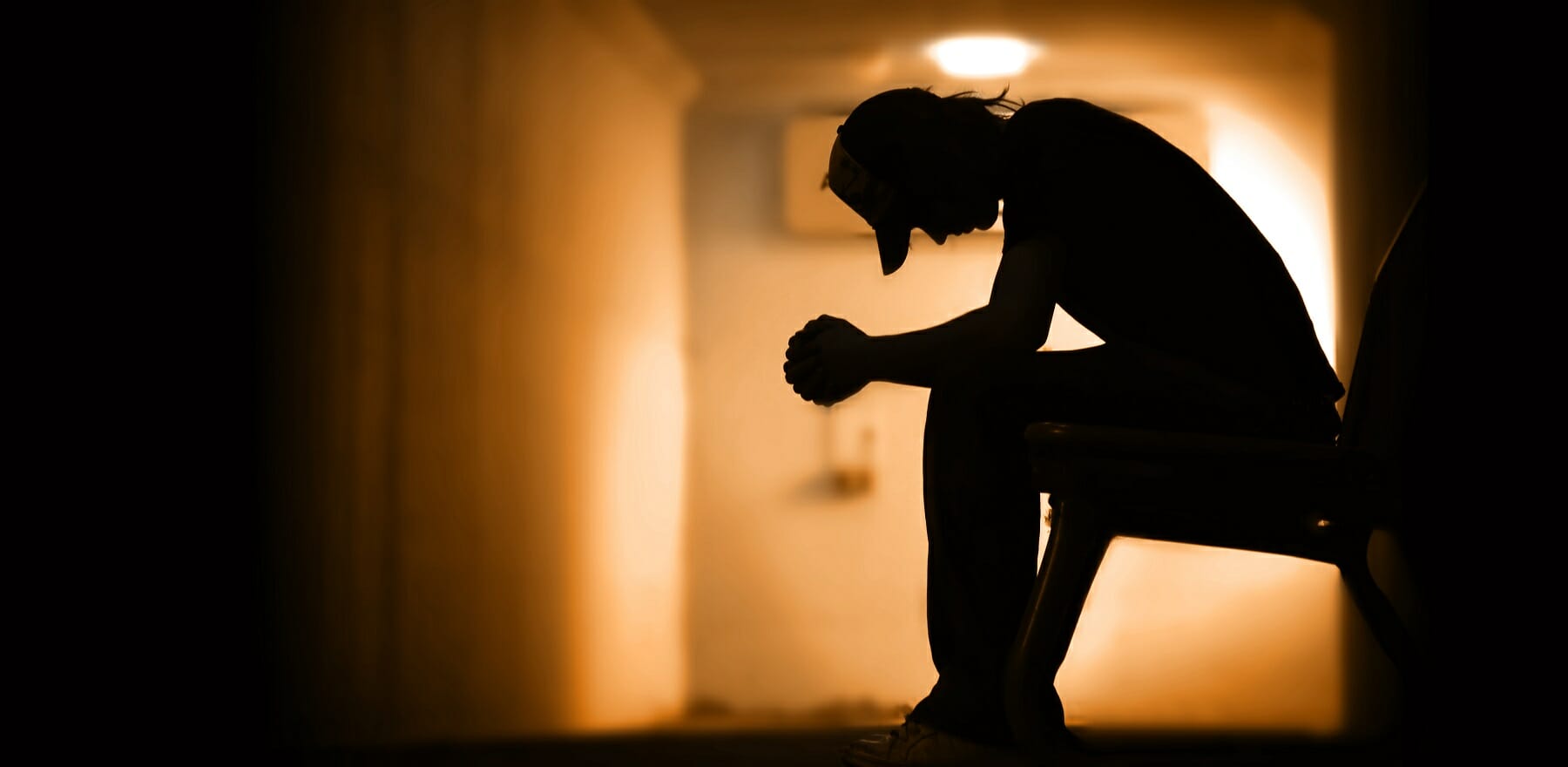
Causes & Risk Factors of GHB Addiction
Exactly what causes addiction in one person and not in another is not yet completely clear. However, various factors have been associated with an increased risk of developing an addiction to GHB, including:
- having a family history of substance abuse and addiction
- having a family history of mental health disorders
- suffering from one or more mental health problems
- associating with a peer group within which GHB consumption is commonplace
- regular easy access to GHB
- frequently attending sex parties, especially within the gay community
- a personal history of substance abuse
- social isolation and withdrawal
- low self-esteem
- a desire to fit in
- a pattern of risky behaviour
- participation in bodybuilding culture
- working in the sex industry
Common Drug Combinations
People taking GHB are much more likely to consume other substances of abuse, especially alcohol and stimulants such as cocaine and MDMA. However, GHB is known to interact dangerously with various drugs, especially alcohol, the elimination rate of which from the body GHB is known to reduce significantly. Most of the deaths associated with GHB have been found to have resulted from respiratory depression caused by the interaction of the drug with alcohol.
Signs and Symptoms of GHB Addiction
It can be very difficult to identify the presence of an addiction, even in someone you believe you know very well like a spouse or other family member. Addicts typically make great efforts to conceal their condition and their addictive behaviour. However, various symptoms may betray the presence of a GHB addiction specifically.
Physical symptoms
Some physical symptoms of GHB addiction include:
- heavy sweating
- shallow infrequent breathing
- fluctuating body temperature
- decreased heart rate
- tremors and muscle spasms
- increased sexual arousal
- nausea and vomiting
- diarrhoea
Cognitive symptoms
GHB addiction may result in various cognitive symptoms including:
- confusion
- impaired memory and amnesia
- disorientation
- photophobia
- impaired decision-making
Behavioural and psychosocial symptoms
Some prominent behavioural and psychosocial symptoms of GHB addiction include:
- slurred or incoherent speech
- decreased anxiety
- stumbling or other loss of motor control
- disinhibition
- relaxation
- euphoria
- feelings of empathy for companions
- hypersexuality
- fatigue
- altered sleeping and eating patterns
- financial difficulties
- changes in peer group
- frequent unexplained absences
The Dangers of GHB Addiction
The most obvious dangers associated with GHB addiction are those relating to physical and mental health. Taking GHB, especially in conjunction with alcohol or other substances of abuse, poses a significant risk of overdose and potentially resulting in death, while long-term GHB abuse has a range of other potential negative health consequences.
GHB possession is illegal, and could lead to a criminal record (and potentially even imprisonment) with obvious long-term implications for life prospects. Associating with GHB dealers increases the risk to be caught up in other criminal activities or to be exposed to acts of violence.
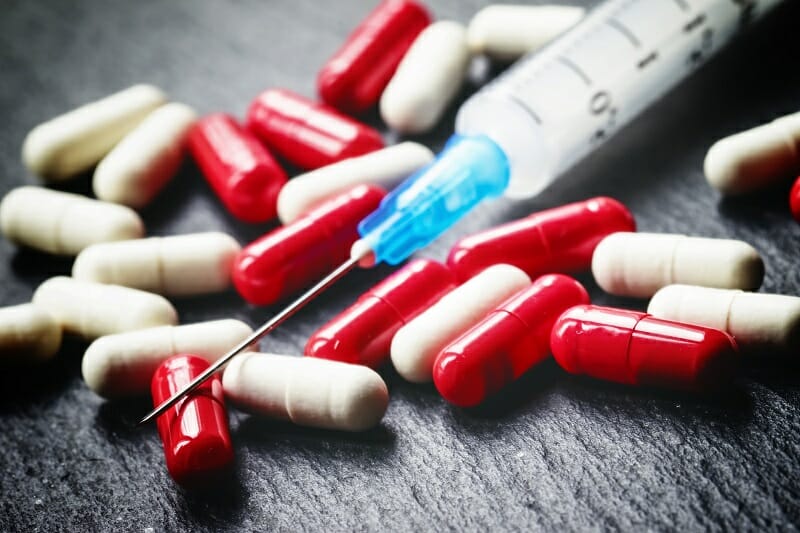
GHB abuse and addiction can cause great and potentially irreparable damage to important relationships including marriages. These habits have been a factor in numerous family break-ups. Even in cases where relationships are maintained, the effects of GHB, including its impact on sexuality and libido, can cause significant estrangement between previously close partners.
Any form of addiction can have very negative financial and professional consequences, potentially causing significant debt and job loss, and even destitution. The impact of addiction on happiness, general well-being, self-esteem and outlook on the world can be extremely serious, especially in instances where harm to physical or mental health has resulted or when relationships or life circumstances have been permanently impaired.
Impact of Long-Term GHB Abuse on the Brain
It is believed that GHB can cause permanent cognitive problems, including attention deficit, an inability to solve complex problems, impaired memory including an incapacity for new memories, as well as diminished spatial and verbal reasoning capabilities. Psychological disorders including psychosis and delirium have also been observed in long-term GHB users, though it is unclear to what extent they are associated with neurological damage.
Withdrawal from GHB dependence, which is known to have a number of neurological and psychological consequences, is also more severe the longer the duration of the dependence.
Call our admissions line 24 hours a day to get help.
Co-Occurring Disorders with GHB Addiction
Substance use disorders often cooccur with other mental health disorders, as substance abuse can both cause and result from mental health issues. This phenomenon is known as dual diagnosis. Individuals suffering from various mental health disorders often turn to substances of abuse for escapism and self-medication. Substance abuse itself can lead to the emergence of exacerbation of mental health issues both because of the direct effect of the substance on the brain and because of the deterioration of life circumstances which frequently results from addiction. In the case of GHB specifically, its impact upon the brain has been associated with a variety of mental health issues including psychosis and depression.
Addiction treatment is almost invariably made significantly more complex by the presence of other mental health issues. Individuals with poor mental health can often struggle to complete treatment and any medication that they may be taking can interact with medicines provided as part of addiction treatment. Cases of dual diagnosis typically require specialist care in dedicated facilities.
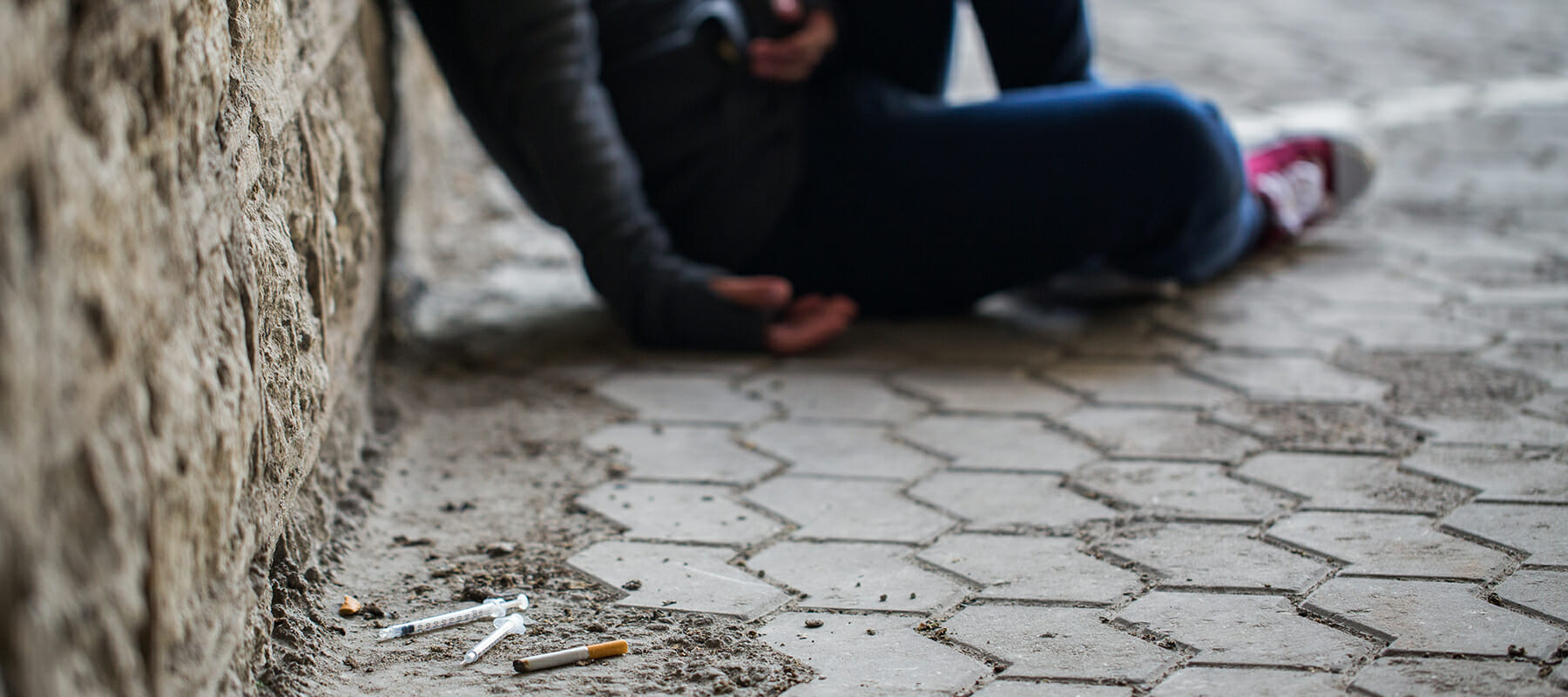
GHB Overdose Explained
GHB Withdrawal and Detox
Someone who has developed a dependence to GHB and who suddenly stops taking the drug is likely to go into withdrawal. GHB withdrawal can be especially unpleasant and dangerous, featuring severe symptoms frequently requiring hospitalisation, occasionally in intensive care, and has been associated with a number of deaths.
Although GHB withdrawal usually lasts between three days and three weeks, some users go on to develop post-acute (or protracted) withdrawal syndrome (PAWS) with symptoms persisting for months or even years after the last dose.
Signs and Symptoms of Withdrawal
Every individual’s experience of withdrawal is unique, and not all users will experience all symptoms of withdrawal. Moreover, the severity and the duration of the withdrawal syndrome can be affected very significantly by factors including the length of the addiction, the dosages consumed, the means of administration and the physiology of the addict.[5]
Some common symptoms of GHB withdrawal include:
- cravings
- insomnia
- restlessness
- anxiety
- nausea and vomiting
- sweating
- confusion
- tremors
- muscle cramps
- muscle spasms
- tachycardia
- delirium
- hallucinations
- paranoia
- psychosis
- depression
- cognitive impairment
- loss of appetite
- suicidal ideation
GHB Detox Process
Individuals who have become addicted to GHB and who wish to overcome their addiction will need to go through a period of detoxification (detox) during which their systems are cleansed of substances of abuse. During this time, withdrawal symptoms may manifest, some of which can be extremely dangerous. Because of these dangers it is absolutely imperative that if you are addicted to GHB you do not attempt to go through detox and withdrawal independently without medical assistance: always speak with a GP and/or an addiction specialist who can discuss your situation and treatment options which may be available to you.
Call our admissions line 24 hours a day to get help.
GHB Addiction Treatments
Fortunately, various addiction treatment facilities, including residential rehabilitation (rehab) centres, across the UK have significant expertise in treating GHB addiction. Addiction treatment typically consists of amedically monitored and managed detox followed by a therapy phase aimed at uncovering and addressing the psychological and behavioural causes of addiction. During this stage, addicts are provided with skills and techniques with which to tackle life after addiction. Various other elements of an addiction treatment plan may be provided, varying from one facility to another.
Overcoming GHB Addiction
Like any addiction, beating GHB addiction requires dedication and hard work. With professional help and the correct support through recovery, even the most long-term GHB addicts can cease their substance abuse and lead happy and healthy lives. It is important to remember, however, that recovery is not achieved the moment an addiction treatment plan is completed: it is a lifelong process with many potential pitfalls along the way.
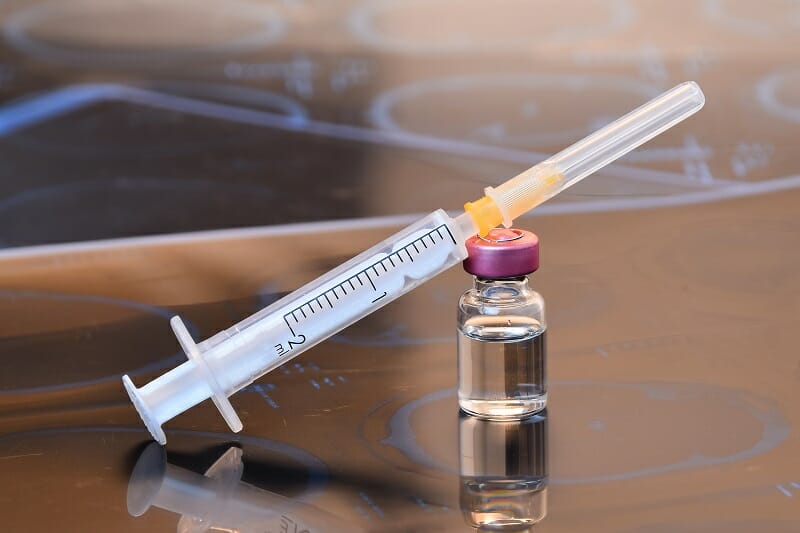
Inpatient and Outpatient Treatment
Rehab for GHB addiction may be provided on either an inpatient or outpatient basis, depending on the facility in question and the needs of the patient.
Inpatient (residential) stays – typically lasting between 30 and 90 days, though shorter or longer treatment programmes may be required depending on the situation. The treatment provided in secure, calm, pleasant and confidential settings, in which clients can focus fully upon treatment and recovery. Holistic addiction treatment programmes are provided including detox and therapy, as well as elements such as dietary and fitness plans. Good rehabs typically provide up to a year’s free aftercare to ensure the best possible environment in which recovery can take place.
For those who feel unable to take the time out from daily responsibilities including work and family, outpatient treatment may be preferable, with some appointments conducted on-site but much of the treatment programme needing to be worked on independently. Outpatient treatment can be problematic in that it does not remove the addict from their familiar environment in which substance abuse and addiction have developed, thus making relapse significantly harder to resist.
GHB Addiction Medications
At present there are no medicines specifically designed to treat GHB addiction and dependence. However, medication can be used in the treatment of GHB withdrawal, especially in severe cases. Benzodiazepines are typically prescribed to counter anxiety and seizures, while antidepressants and antipsychotics may be given to counteract some of the worst longer-lasting symptoms of GHB withdrawal.
Therapy for GHB Addiction
Therapy is the foundation of all addiction treatment, and numerous different approaches and methodologies may be applied in the treatment of GHB addiction.
Cognitive behavioural therapy (CBT)
CBT seeks to reveal and change negative thoughts and behaviours, to improve emotional regulation, and to allow the individual in therapy to develop their own coping strategies to address the issues that are affecting them. The therapist works to help find and develop own strategies. In addiction treatment, the focus is primarily upon understanding and changing the behaviour which led to the development of the addiction and creating mechanisms to resist relapse and to engage more fully with a healthy sober life.
Biofeedback therapy
Biofeedback aims to help addicts regain control over mind and body. The aim is to get back in control of those bodily functions and reactions to stimuli, which have become involuntary or uncontrollable because of addiction. This therapy sees various sensors placed on the addict’s body which give feedback which can be interpreted by professionals and relayed back in the form of sound or light, helping bybecoming aware of stress and other triggers and giving a greater ability to manage them. [6]
Group therapy
Group therapy enables addicts to benefit from the experience and companionship of other people in similar situations who understand the condition of addiction. The therapist will guide the discussion to a degree, but the interaction between addicts is the primary focus. The aim is to provide different viewpoints and perspectives, as well as different interpretations of situations which may have been extremely influential in the development of addiction.
One-on-one counselling
While much therapy is aimed at helping clients work through their own issues, counselling is based upon listening and the provision of advice. Many addicts do not have the benefit of careful advice in their normal lives, and this can contribute to dangerous decision-making and behaviour. Counsellors seek to guide clients to healthier thinking and behaviour, giving advice on specific situations – such as those thrown up by substance abuse and addiction.
Holistic therapy
Holistic addiction therapy is based on the belief that in order to overcome addiction, an addict needs to heal mind, body and spirit. Each of these components is addressed. Diet and fitness join mindfulness, talk therapy and other components in a programme which seeks to tackle all the various issues which combined create negative thinking and behaviour.
Motivational enhancement therapy (MET)
MET aims to help addicts change their thoughts and actions based on five primary elements: understanding and expressing empathy, understanding the difference between thought and reality, conflict avoidance, working through resistance to changeand developing and improving self-efficacy.
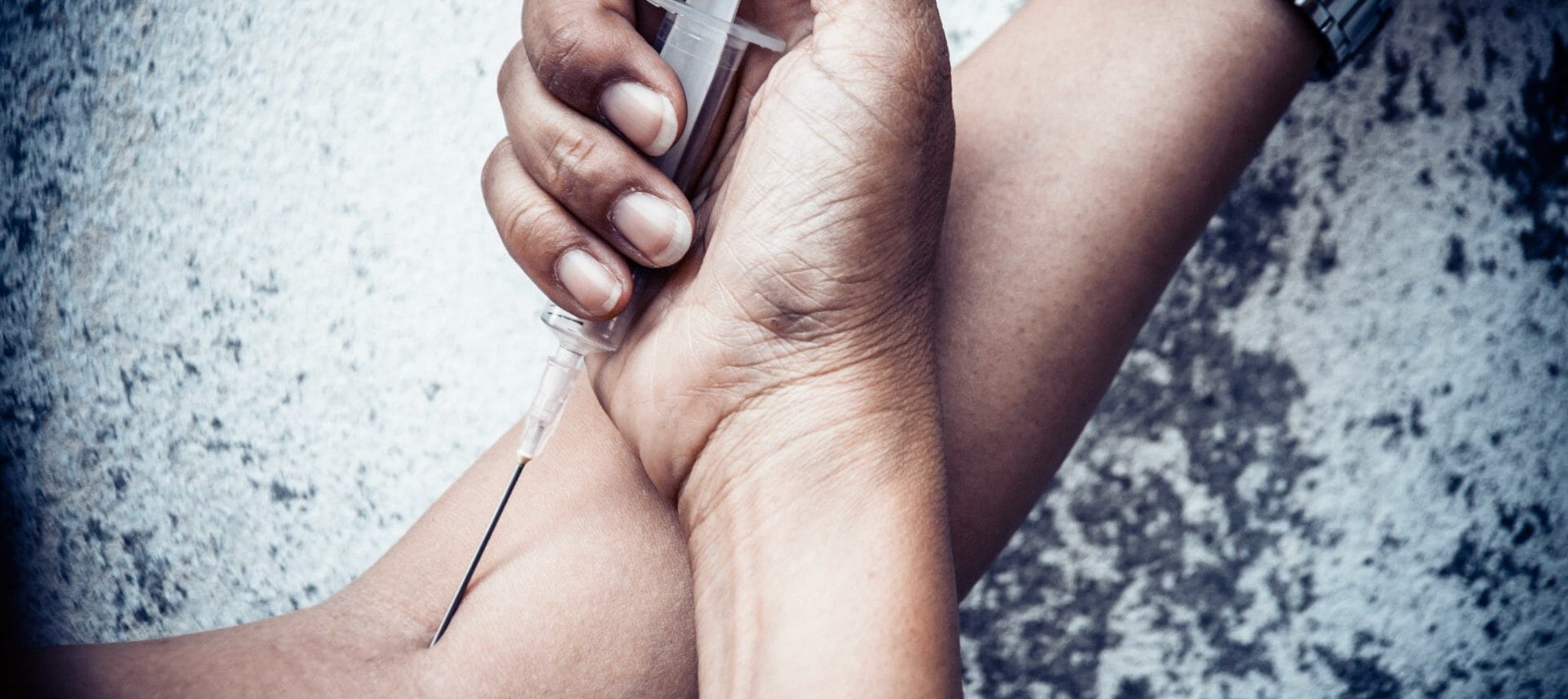
Dialectical behaviour therapy(DBT)
DBT is an evidence-based behavioural therapy seeking to change behavioural patterns, combining standard cognitive behavioural techniques with elements such as mindfulness and acceptance frequently taken from meditative practices found in Buddhism. DBT helps addicts improve their emotional regulation by understanding their triggers and applying coping skills in order to avoid relapse.
12-step programmes
Some treatment programmes incorporate the twelve-step methodology initially developed by the founders of Alcoholics Anonymous (AA). Addicts accept that they cannot control their substance abuse and addiction and seek to learn how to lead a new life with an improved code of behaviour. Some addicts find twelve-step programmes incompatible with their personal beliefs as they are expected to concede that they can be helped by a higher power, in which many people do not believe.
Family and social therapy
Family members and friends can play a crucial role in combating addiction – and can also benefit from therapy in order to address the damage done to them. Family therapy takes various forms, some of which do not involve the addicts themselves.
Peer support group participation
Support groups such as Narcotics Anonymous (NA) can provide invaluable support, advice and companionship during recovery. Meetings are typically held weekly and there is no charge to attend; the only criterion is a commitment to leading a life free of substance abuse.
Experiential therapy to manage mental conditions that contribute to addiction
Experiential therapy is a non-traditional therapy model using various experiences to help addicts work through challenging memories and impulses. Experiences such as climbing, camping, listening to music and many others may all become foundations for self-exploration and personal development.
Other Kinds of Intervention
If someone close you are suffering from a GHB addiction it is understandable that you may wish to take action, and an intervention might be appropriate. However, sudden and rushed intervening can do more harm than good. If you are contemplating an intervention, contact an addiction specialist for advice – and always prioritise safety above all else.
Ongoing Treatment and Relapse Prevention Strategies
Recovery does not end at the completion of a treatment programme, and fighting relapse will be an ongoing challenge. Treatment can provide you with defence mechanisms against relapse, while support group assistance and counselling during recovery can help shore up those defences. To learn more about relapse prevention, contact an addiction specialist.
How to Find the Right Treatment Centre
Not every treatment facility will be appropriate for you: some may not offer the treatment that you want, while others may be too far from (or too close to) home for comfort. If you are considering treatment for your GHB addiction, get in touch with an addiction specialist who can inform you about treatment centres which may be appropriate.
GHB Addiction Statistics
- Doses of GHB over 7,000mg typically result in respiratory depression which may be fatal. [5]
- Approximately 2% of cases of date rape in the UK involve GHB.
- In one study, 66% of deaths associated with GHB also involved the consumption of other substances of abuse.
- GHB was first studied as early as 1874. [7]
- Deaths involving GHB in the UK reached a new peak in 2016, with 30 fatalities reported.
Ready to get Help for Your Addiction?

Call our admissions line 24 hours a day to get help.
Take control of your life – get started on the road to recovery
Addiction can dominate your life – but it doesn’t have to be that way. Take back control by picking up the phone and reaching out for help, and take the first steps on the path back to a life free of GHB abuse.
Related FAQ’s
Source
- [1]https://www.exchangesupplies.org/pdf/R10_3.pdf
- [2]https://drugfree.org/drug/ghb/
- [3]https://www.who.int/medicines/areas/quality_safety/4.1GHBcritical_review.pdf
- [4]https://www.encyclopedia.com/science/applied-and-social-sciences-magazines/ghb
- [5]https://www.withdrawal.net/ghb/symptoms-and-timeline/
- [6]https://www.medicalnewstoday.com/articles/265802.php
- [7]http://web.archive.org/web/20120225090905/http://www.psychoactive.org.uk/GHB/history.htm
No matter where you live, there is a drug rehab center that can help you overcome your addiction. We'll help you find it.
Select a County



